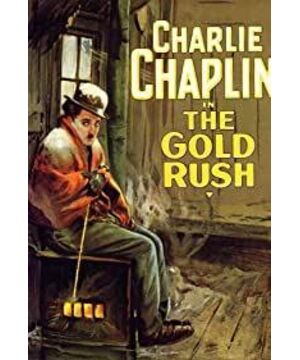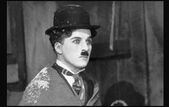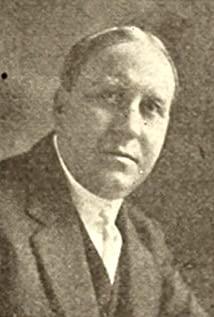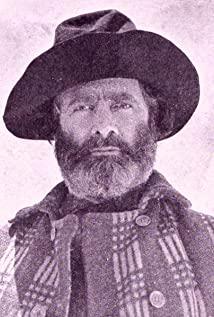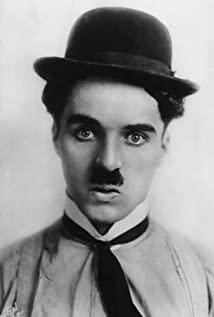How old did I know about Chaplin?
The impression is really vague, and part of my childhood memory comes from my third uncle's house upstairs. When returning to celebrate the Spring Festival in a certain year, San Shu brought back a large box of the complete works of Chaplin's classics. I remember that the cover is black and white.
At that time, the video medium was still VCD, and his home also installed a DVD player. I don't know why Sanshu chose Chaplin's full set of albums during the Spring Festival that year. It may be because of the comedy on the cover, which is suitable for all ages and is suitable for family viewing.
Inside a box of Chaplin, there are many Chaplins, such as "Modern Times", "The Great Dictator", etc., divided into discs one by one.
Our children hurriedly gathered around a pile and carefully put it into the disc player. That was the first time I met Chaplin.
At that time, the TV set still had a big butt, the small screen was square, and the ratio was four to three. A small person began to appear on the screen with a beard on his mouth and his shoes would never fit. There is no dialogue, only surprisingly exaggerated actions.
As it tells the story of the United States from the 1920s to the 1930s, not only the space is too unfamiliar to us children in small cities, but the time is also too far apart. More often, I can't understand the factory inside, the bar inside, and the street inside.
Because it was a black-and-white movie, I felt bored when I watched it. I even felt that the man on TV was comical, too exaggerated, and couldn't resonate. Of course there are some funny plots, but if you want to ask what it is, my brain is really blurred.
When I was young, I looked at Chaplin with a lonely mood.
During the Spring Festival, there are bound to be quarrels or cold wars with adults (that is, parents) in my family. Every year my dad goes home once, my childhood nightmare is one more time. Quarreling has become a unique traditional custom during Chinese New Year in my family.
When my home is on the fifth floor, it will become quiet, chilly, without a taste of the year, my mother will never lie on the bed in the bedroom unhappily, her eyes are red and swollen, and she is silent. The entire fifth floor is gloomy.
Our family has no neighbors from strangers, and the whole family lives in a self-built building. San Shu's house and Uncle's house live on the sixth and seventh floors respectively.
For me when I was a child, I only needed to walk up a floor and enter the house to have a completely different atmosphere. There are parents who can sit side by side on the sofa in the living room without quarreling, with apples, oranges, and melon seeds on the table. They talked about the parents' short-term relationship and the arrangement of the blind date. The cousin and the cousin were fighting for the remote control, and the cousin was listening to TWINS in the room.
I only need to integrate into one of them to temporarily forget the embarrassing family downstairs. Even if I have no feelings for Chaplin, it does not prevent me from sitting aside, pretending to be a member of their family, and watching the TV in harmony.
The Spring Festival has been here for many years.
Later, we grew up slowly, went to junior high school, high school, and started listening to Eason Chan and Jay Chou, watching Jackie Chan movies, and watching Andy Lau movies. Chaplin's DVD was never seen again at San Shu's house, and I don't know where it was forgotten. Maybe it has been thrown away as garbage.
A few days ago, I bought the online course "Top Ten Highlight Moments in a Century of Film History" by Beiying Professor Dai Jinhua. After a while, I took it out again to listen to and take notes.
She talked about film, as the seventh largest art in the world, and the only art where humans can witness its birth.
Six major arts in the world: painting, drama, architecture, dance, music, sculpture, and literature. The birth of the film carries all the above arts, and only it has a complete relative time-space structure. "Can feel and see the changes in time and space at the same time."
It turned out that from the Belgian physicist Prado's discovery of the "principle of visual residue" to the invention of the "movie mirror" by Edison, human curiosity about moving images began to flow continuously——
On December 28, 1895, the French Lumière brothers used a movie projector in a cafe in Paris to show the films they shot and produced: "Train Into the Station", "Factory Gate" and "Watered Gardener", which shocked the whole world. world.
But at this time, the so-called movie is just a fixed position, shooting real pictures, without narrative design, without cutting, basically equal to the recording mode.
The Lumiere brothers were later called the "fathers of movies" because the film shooting machines they invented provided the earliest mechanical and material foundations for today's film production and projection.
However, there is still controversy as to whom the title of the so-called "father of movies" will go to. Because there is another character who has influenced the development of today's film: French puppet show owner Georges Méliès. He discovered the potential business opportunities of film shooting machines. If you use this machine to shoot puppet shows, you can achieve the effect of looping, and you can get higher profits at a lower cost.
"It is this shrewd business consideration that makes film and narrative meet."
Since then, Meili Ai was not satisfied with recording puppet shows, and began to produce various movies, the most famous being "Moon Journey".
Unconsciously, the giant wheel of film history has entered the era of silent film. At that time, there was a more familiar operation and material basis for lens design and picture editing, and human imagination became infinite. At that time, talented people appeared in large numbers, and Chaplin was the most eye-catching person.
Like many big people, he had an unfortunate childhood. Chaplin was born in 1889 in London, England. His parents drank and divorced. His father died when Chaplin was 12 years old. His mother was subsequently admitted to a mental hospital. He and a few children were displaced and grew up amidst the bumps. Until he entered the theater at the age of 17, Chaplin's miserable experience brought him endless inspiration for his performance, and soon he became famous.
I will watch "The Gold Rush" released in 1925, directed by Chaplin, written and starred. In 1992, it was collected by the National Film Protection Agency in the Library of Congress. In 2007, it was included in the list of "100 Best Movies in the Century" by the American Film Institute.
This is a very successful movie. I don’t remember if I saw it in my childhood, but I have lost the impression anyway.
The story is very simple. In the era of the gold rush, Chaplin met fellow gold rushers in a cold house. Everyone was hungry, and finally left a series of stories.
It is not easy to watch "Gold Rush" in China. I rummaged through large and small websites, but I couldn’t find the original version. There were and only the later version with simultaneous voice dubbing. What is the meaning of the silent film?
In the end, I had to climb the ladder to find the original 1925 version in the tubing-there is no simultaneous sound, only a scene of dialogue prompts. The audience must pay attention to their exaggerated movements and expressions to guess the story of the characters and the subsequent The plot goes.
I think this is a unique charm of few silent films. It tests the skills of actors in that era, as well as the coherence of the script, which can bring surprises to the audience. At that time, there were no advanced shooting techniques that are now developed, and many of the thrilling-looking shots were achieved by Chaplin through borrowing and perspective.
In "Gold Rush", in order to find gold, Chaplin was hungry and had to treat his leather shoes as steaks, and raised his knife and fork in front of his partner to eat with relish. Hungry to dizziness, his companion even had hallucinations, treating Chaplin as a fat chicken and starting to hunt him down.
I have to admire Chaplin's superb acting skills. He played the embarrassment and strength to the right level. Under his interpretation, the little man's patience in order to survive, there is no bitterness, only fun.
Leaving the gold rush area, Chaplin's torn hat, old dress, fat shoes, a cane that never leaves his hand, and a horoscope make him look shabby. Compared with the men and women who are covered in furs and drunk, they look out of place.
In full view, he made a lot of jokes again, but he didn't care, only Georgia, who actively invited him to dance in order to escape his boyfriend, was in his eyes.
But he is always alone, constantly forgotten and abandoned. On New Year's Eve, Georgia, who had rashly promised to spend with him, was also busy having fun with everyone in the bar.
The core of comedy is tragedy. No matter how cute and strong the protagonist is, his lonely destiny cannot be changed. I often feel that to judge whether a movie is good-looking and impressive, one of the metrics is whether it tears the most beautiful things and emotions to pieces and shows them to the audience without losing their pretentiousness.
Most of Chaplin's movies are like this, he uses his misfortune to bring people joy. Only with the harsh laughter of everyone, can you pretend that this is not just the fate of a poor bug.
Speaking of this, I suddenly remember that when everyone was sitting around and looking at Chaplin when I was young, they laughed, and I laughed too. Maybe the laugh at the time was just for gregariousness.
I really envy the neat atmosphere of their family, and laugh together, maybe pretend that I am also a member of their family, and not from the Spring Festival orphans downstairs.
At the end of the film, there was a sentence that almost made me cry.
Chaplin finally found a gold mine with his partner, became a rich man, put on a high-end suit and smooth leather shoes, and sat in the first class on the cruise ship. The journalist who followed up asked him if he could wear that ridiculous costume one more time to take pictures. He readily agreed.
In the room to be changed, there is a simple photo. The person in the photo is Georgia. Chaplin looked at the picture frame and did not speak. But suddenly there was a dialogue in the next scene. I guess that was a sentence that came to his mind.
"Everthing but Georgia."
Now has everything,
But the one who makes you feel loved the most is missing.
-
Postscript: Chaplin is a peerless talent and a wandering son. Most of the film images he interprets are innocent and loyal, and the world praises his "specificity" about his emotions in real life: no matter what age he is, he only loves young women. Some people attribute this complex to his lack of love in childhood. After several decades of wandering in the film industry, he was full of glory and swearing. He satirized the upper class in movies, had a love relationship with countless women, refused to shake hands with Jewish elements, and was once cancelled by the US government's residency and returned to London.
Friends who are interested in his history can watch his autobiography written in his later years.
In his later years when the vanity faded, 70-year-old Chaplin wrote a poem as a gift to himself:
"When I Start to Love Myself"
As I began to love myself I found that anguish and emotional suffering are only warning signs that I was living against my own truth. Today, I know, this is AUTHENTICITY.
When I started to love myself, I found that anger and emotional torture were just warning signs that reminded me that I had violated my true self. Today, I know, this is sincerity .
As I began to love myself I understood how much it can offend somebody if I try to force my desires on this person, even though I knew the time was not right and the person was not ready for it, and even though this person was me . Today I call it RESPECT.
When I started to love myself, I understood how offensive it was to impose my desire on someone, even if I knew it was just the wrong time and the person was not ready for it, even if the person was myself. Today I call this respect .
As I began to love myself I stopped craving for a different life, and I could see that everything that surrounded me was inviting me to grow. Today I call it MATURITY.
When I started to love myself, I stopped and no longer longed for a life different from what I am now, and I began to see: Everything around me is inviting me to grow. Today I call this maturity .
As I began to love myself I understood that at any circumstance, I am in the right place at the right time, and everything happens at the exactly right moment. So I could be calm. Today I call it SELF-CONFIDENCE.
When I started to love myself, I understood that in any situation, I was at the right time and the place, and it happened together just right. So I can take it easy. Today I call this self-confidence .
As I began to love myself I quit stealing my own time, and I stopped designing huge projects for the future. Today, I only do what brings me joy and happiness, things I love to do and that make my heart cheer, and I do them in my own way and in my own rhythm. Today I call it SIMPLICITY.
When I started to love myself, I didn't want to steal my time anymore, I stopped and no longer thought about huge plans for the future. Today, I only do those things that can bring me happiness and happiness, those things that I love and make my heart cheer for, and only do these things in my own way and at my own pace. Today I call this simple .
As I began to love myself I freed myself of anything that is no good for my health – food, people, things, situations, and everything that drew me down and away from myself. At first I called this attitude a healthy egoism. Today I know it is LOVE OF ONESELF .
When I start to love myself, I free myself from everything that is bad for my health—food, people, things, situations, and everything that pulls me down and away from my true self. At first, I called this attitude good egoism. Today I call this love for myself .
As I began to love myself I quit trying to always be right, and ever since I was wrong less of the time. Today I discovered that is MODESTY.
When I started to love myself, I didn't want to try to be the right person forever, but since then, I made fewer and fewer mistakes.
As I began to love myself I refused to go on living in the past and worrying about the future. Now, I only live for the moment, where everything is happening. Today I live each day, day by day, and I call it FULFILLMENT .
When I started to love myself, I refused to continue to live in the past, and refused to continue to worry about the future. Now, I only live in the present moment, the moment when everything is born. Today, I live every day, day after day, and I call this real living .
As I began to love myself I recognized that my mind can disturb me and it can make me sick. But as I connected it to my heart, my mind became a valuable ally. Today I call this connection WISDOM OF THE HEART.
When I started to love myself, I realized that my mind would interfere with me, and it might make me sick. But when I connect the mind with the soul, it becomes a precious ally of the soul. Today, I call this connection the wisdom of the soul .
We no longer need to fear arguments, confrontations or any kind of problems with ourselves or others. Even stars collide, and out of their crashing new worlds are born. Today I know THAT IS LIFE.
We no longer need to be afraid of arguing, confrontation, or any problems with ourselves and others. Even stars collide, and the new world is born in the disintegration after the collision. Today I know, this is life.
View more about The Gold Rush reviews


